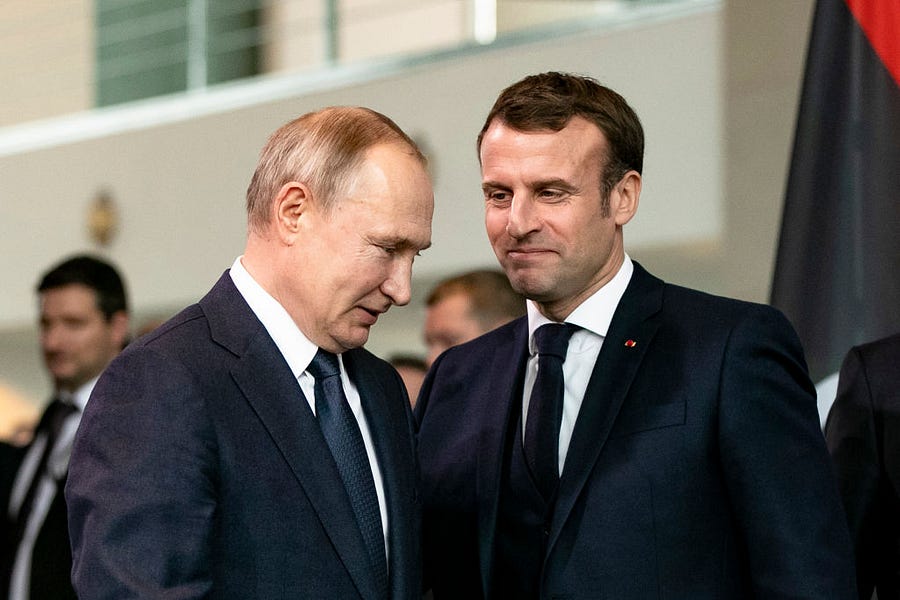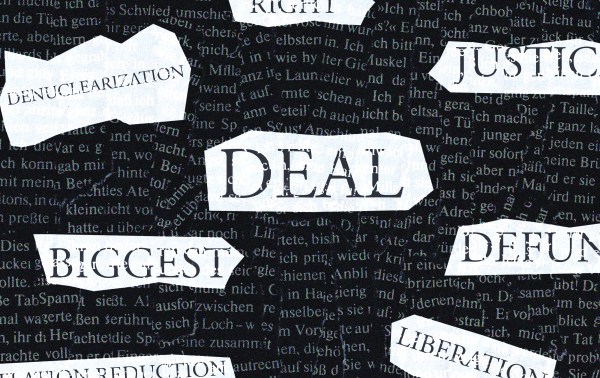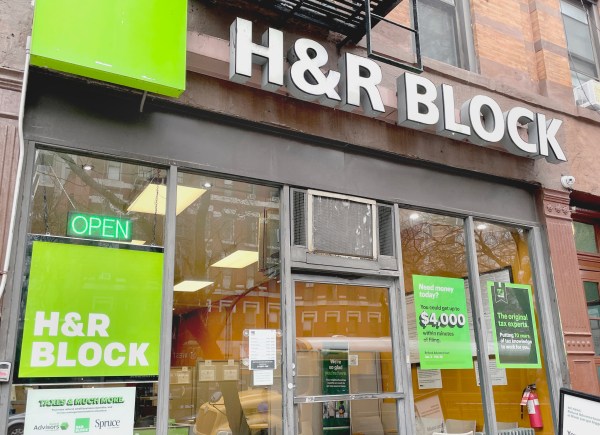As Ukrainian soldiers and civilians were enduring their 100th day of brutal fighting against invading Russian troops, French President Emmanuel Macron was giving an interview to La Montagne, a French regional newspaper, on upcoming French legislative elections. At the end of the wide-ranging discussion, Macron answered a direct question about the war in Ukraine.
“We must not humiliate Russia so that when the fighting is over, we can forge a diplomatic agreement,” he said in the June 3 interview. “I’m convinced that France’s role is as a mediating power.”
The comments were not well-received. Ukraine’s foreign minister, Dmytro Kuleba, responded that such an approach “can only humiliate France.”
Three days later, Gerard Larcher, president of the French Senate and second to the president of the republic in the constitutional line of succession, said he’d go to Kyiv “very soon.” He made the vow during a press conference in Paris with the head of Ukraine’s parliament, Rouslan Stefantchuk, in what appeared to be an attempt to smooth ruffled feathers.
On June 10, a source at the French presidential palace, the Elysée, told Sophie Pedder, Paris bureau chief for The Economist, that “France wants Ukraine to win the war.” As Pedder pointed out in a tweet, it’s “a reflection of the confusion out there about France’s objectives that this comment needs to be made.”
Macron envisions an outsized role for France in the world, but so far his attempts to make France “a mediating power” have largely come up short, thanks in large part to the reported tensions between Ukrainian President Volodymyr Zelensky and Macron after several of the latter’s public statements: his hesitancy to use the word “genocide” to describe Putin’s actions in Ukraine, a May 9 speech in which Macron first mentioned avoiding “the temptation of humiliation” toward Russia and seemed to suggest he was against Ukraine’s accession to the European Union, and now over the latest “humiliation” comments.
The most recent dust-up highlights the tightrope that the Ukrainian government and world leaders, especially Macron, must walk. After more than 100 days of fighting and with almost one-fifth of Ukrainian territory now in Russian hands, Zelensky’s Western backers are trying to strike a delicate balance between acknowledging the possibility of a negotiated settlement and giving Ukraine the best chance for a military victory—and keeping their own alliance together as they do it.
In the wake of Macron’s recent missteps, the Elysée does seem to be shifting its message from “‘Russia must not win’ to ‘Ukraine must win,’” said Martin Quencez, a fellow at the German Marshall Fund and deputy director of their Paris office. One of the ways French officials are pivoting is through Macron’s planned trip to Eastern European countries this week, with the potential for a visit to Kyiv.
Before the invasion, Macron had a hotline to Russian President Vladimir Putin. In an attempt at shuttle diplomacy in February, Macron traveled to Russia—where he famously sat at the end of a very, very long table after refusing a Russian COVID test—and to Ukraine to head an invasion off at the pass. That effort failed. The French president has made a number of phone calls to his Russian counterpart, many of which Macron claimed were at the behest of Zelensky. Russian state media has apparently gone so far as to coin a new verb for someone calling repeatedly, and without reason: macronit.
“What you hear is that the regular phone calls between Macron and Putin have convinced Macron that Putin is sort of a different leader than the Putin he met in 2017 in Versailles, or even in 2019,” Quencez said. “There’s been an evolution in the dictatorship journey of Vladimir Putin. And right now we’re dealing with a paranoid leader who doesn’t hear any of the arguments that are presented to him by Macron during the different phone calls, and sort of operates on a different level of rationality.”
“These calls have had an impact,” he added, “but maybe more on Macron than on Putin.”
Macron has tried to play mediator before—in Lebanon, in Iraq, and in Libya—with limited success. Eric Edelman, former U.S. ambassador to Finland and Turkey and former under secretary of defense for policy at the Department of Defense, pointed out that France has a long history of acting as an independent actor between world powers, dating back to President Charles de Gaulle.
“I think there is some virtue in keeping lines open with Putin, but I think Macron has overdone it,” Edelman told The Dispatch. “The constant calls from him, and from [German Chancellor Olaf] Scholz, are interpreted by Putin, in my view, as weakness, indicating that the West can be brought around to sue for peace.”
Pascal Cauchy, a former French diplomat posted to Moscow and current professor of history at the Paris Institute of Political Studies, told The Dispatch that Macron is in a unique position among Western leaders to serve as mediator in negotiations between Ukraine and Russia, should they actually occur, because of a confluence of recent history and international politics.
In 2014, when Russia annexed Crimea, France and Germany were sitting at the table in Minsk, Belarus, with Russia and Ukraine to negotiate the end of that conflict.
The first Minsk agreement established a ceasefire in September 2014, which ultimately went ignored by Russian-backed militias. Russia continued to bolster the pro-Russian breakaway regions of Luhansk and Donetsk in the eastern Donbas region with material and political support. The agreement also changed the paradigm on Luhansk and Donetsk—from regions of Ukraine that needed to be brought back under Ukrainian rule to breakaway states whose status was open to political settlement.
Minsk II, drafted in February 2015 after the breakdown of Minsk I, exacerbated this debate through vague, complicated, and contradictory language. It attempted to reinforce the ceasefire but conditioned control of the border on the agreement’s political articles. The most crucial political elements were confusing enough for Ukraine and Russia to arrive at two mutually exclusive interpretations, allowing Russia to hold the border hostage to its own reading.
The Minsk agreements ultimately failed to establish enduring peace and normalized the Eastern separatist enclaves. But according to Cauchy, France’s good-faith involvement in the negotiations gives France a special legitimacy with the Russians that the U.S. and U.K. lack for being “too aggressive on Russia.” Germany—though an original voice at Minsk I and II negotiations—is both politically unstable after the departure of the long-serving Chancellor Angela Merkel and compromised by its economic ties in Russia and dependence on Russian energy, Cauchy argued.
“I truly think that the best way to defend our interest is to, as they say, be around the table rather than on the menu,” Quencez said of Macron’s motivation to take such an active role in mediating the current conflict. “When we talk about European security, about the political order of the continent, France cannot afford to delegate that to the U.S. or another country because our interest is so linked to it.”
Many in the U.S. foreign policy world, though, warn against succumbing once again to the pitfalls of the Minsk agreements. In the open letter published in The Hill on June 10, 36 experts—including Marie Yovanovitch, the former U.S. ambassador to Ukraine who became embroiled in former President Donald Trump’s first impeachment trial—outlined why “the United States and Europe must avoid the urge to encourage Kyiv to negotiate a ceasefire that falls short of Ukraine’s goals and could consign millions of Ukrainians to Russian control.”
Edelman, a signatory to the letter, pointed to increasing rhetoric—including from the New York Times editorial board and former Secretary of State Henry Kissinger—around the possibility of pressuring Ukraine into a ceasefire as his motivation for signing.
“Given what Putin is saying, given how he’s behaved over the last decade with regard to Ukraine, I don’t believe that there is any reason to believe that a ceasefire would be anything other than a pause between wars, because he would use the time to refit, restock, and refresh his forces and launch another war,” said Edelman
Mid-level Ukrainian and Russian officials have been negotiating since late February, beginning only days after the Russians first invaded on February 24. The talks yielded prisoner exchanges and provisional ceasefires to evacuate civilians through humanitarian corridors, not peace agreements. But in mid-May they stalled entirely, in part over Russian insistence that it remain in control of seized territory, and in part because increased aid from the West and atrocities like those discovered in Bucha made Ukrainians less open to concessions.
The U.S. position is to send Ukraine a “significant amount of weapons and ammunition as quickly as possible to strengthen its position on the battlefield so they can be in the strongest possible position at the negotiating table when that time comes,” a State Department spokesperson said.
President Joe Biden has been tough on Russia, both in rhetoric and material support for Ukraine.
The president denounced his Russian counterpart as a “war criminal” committing “genocide,” and pushed for for the $54 billion in aid sent to Ukraine to date. On Wednesday, the administration announced an additional billion dollars in U.S. military support, including artillery, rocket systems, and vehicle-mounted harpoon anti-ship missiles. In a May 31 New York Times op-ed, Biden called ensuring peace in Europe “of vital national interest” to the United States and wrote that America’s goal was “to see a democratic, independent, sovereign and prosperous Ukraine with the means to deter and defend itself against further aggression.”
But territorial agreement and security guarantees for Ukraine will continue to be sticking points in any negotiations, and not just between the two warring parties. Europe and the West more broadly will also have to decide whether they want Ukraine to join NATO and the EU, and how involved they will be in keeping peace.
“We do not want to prolong the war just to inflict pain on Russia,” Biden wrote in the Times, in some ways echoing Macron’s warning against humiliation as a war tactic.
“France isn’t alone in thinking that a weaker Russia is potentially more dangerous,” Quencez told The Dispatch. In his mind, though, there is some question whether weakening Russia is, in fact, a U.S. policy “goal in itself.”
“This triggers certain questions for Europe that France is not so at ease with,” Quencez said.
To analysts and former diplomats like Edelman in the U.S., though, history demonstrates the danger of appeasing Russia in an effort to avoid provoking it. “Russia has launched a war against Georgia in 2008, illegally seized Crimea after violating any number of international agreements, to which we were signatories,” he told The Dispatch. “And they were signatories. And now it has launched a clearly unprovoked, premeditated aggression against Ukraine. So if we weaken Russia, they’re going to be more dangerous?”
As policy debate rages, a real war rages too. Ukrainian troops are currently defending Severodonetsk, one of the last Ukrainian-held areas in the war-ravaged Donbas region. Fighting there, President Zelensky said Monday, “will surely go down in military history as one of the most brutal battles in Europe and for Europe.”
“I am sure that if Ukraine is not strong enough, they will go further,” Zelensky said of Russian forces Tuesday. “We have shown to them our strength. And it is important for this strength to be also demonstrated together with us by our Western partners as well.”








Please note that we at The Dispatch hold ourselves, our work, and our commenters to a higher standard than other places on the internet. We welcome comments that foster genuine debate or discussion—including comments critical of us or our work—but responses that include ad hominem attacks on fellow Dispatch members or are intended to stoke fear and anger may be moderated.
With your membership, you only have the ability to comment on The Morning Dispatch articles. Consider upgrading to join the conversation everywhere.